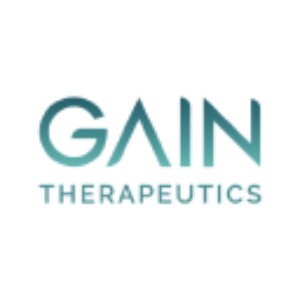Gain Therapeutics Progresses Krabbe Disease Program and Provides Scientific Update
Gain Therapeutics (Nasdaq: GANX) provided a scientific update on its Krabbe disease program, highlighting statistically significant increases in the GALC enzyme and a reduction in toxic substrate psychosine. This breakthrough suggests potential treatment options for patients with Krabbe disease, a severe genetic disorder affecting the nervous system. Initial tests on compounds showed promise in reducing psychosine levels. The next phase involves further evaluation of compounds in complex in vitro models.
- Significant increases in GALC enzyme activity.
- Reduction of psychosine levels in glial cultures.
- Initial results support further development for Krabbe disease treatment.
- None.
Insights
Analyzing...
Data Show Statistically Significant Increases in GALC Enzyme and Depletion of Toxic Substrate Psychosine
BETHESDA, Md., Dec. 07, 2021 (GLOBE NEWSWIRE) -- Gain Therapeutics, Inc. (Nasdaq: GANX) (“Gain”, or the “Company”), a biotechnology company focused on identifying and optimizing allosteric binding sites never before targeted in neurodegenerative diseases and lysosomal storage disorders, today announced a scientific update on the company’s Krabbe disease program. Gain is developing allosteric regulators to stabilize the galactosylceramidase (GALC) enzyme and reduce psychosine disease causing toxic substrate, potentially providing the first treatment option to patients with this devastating disease.
“These data provide additional validation of our approach in treating lysosomal storage diseases,” said Eric Richman, Chief Executive Officer of Gain. “We are encouraged by these early results and look forward to further studies and moving the program forward for Krabbe disease patients who currently have no or very limited therapeutic options.”
Krabbe disease, also known as globoid cell leukodystrophy, is a genetic disease that affects the central and peripheral nervous systems. It is caused by mutations in GALC, the gene that encodes the GALC enzyme necessary for the breakdown of several galactosyl-sphingolipids, particularly galactosylceramide and psychosine. These mutations cause misfolding and dysfunction of the GALC enzyme resulting in an accumulation of psychosine, which is highly toxic to all cell types and leads to loss of myelin (demyelination) and progressive damage to nerves in both the brain and peripheral tissues. GALC mutations are also implicated in numerous neurodegenerative disorders and is a dominant risk factor for multiple sclerosis.
In collaboration with Dr. Ernesto R. Bongarzone, Ph.D., Professor in Neuroscience at the College of Medicine at the University of Illinois, Chicago, initial compounds from this program were tested in mouse glial cultures and cell lines with relevant GALC mutations to measure their effect on GALC enzymatic activity and psychosine levels.
“The tested compounds showed significant reduction in psychosine levels in glial cultures,” said Dr. Bongarzone, Ph.D. “This potential to reduce psychosine is an exciting finding that warrants further research.”
The next phase of Gain’s program for Krabbe disease will include further evaluation of compounds in induced pluripotent stem cells, and additional evaluation of GALC activity and intracellular psychosine levels in more complex in vitro models.
About Gain Therapeutics, Inc.
Gain Therapeutics, Inc. is positioned at the confluence of technology and healthcare and focused on redefining drug discovery with its SEE-Tx™ target identification platform. By identifying and optimizing allosteric binding sites that have never before been targeted, Gain is unlocking new treatment options for difficult-to-treat disorders characterized by protein misfolding. Gain was established in 2017 with the support of its founders and institutional investors. It has been awarded funding support from The Michael J. Fox Foundation for Parkinson’s Research (MJFF) and The Silverstein Foundation for Parkinson’s with GBA, as well as from the Eurostars-2 joint program with co-funding from the European Union Horizon 2020 research and Innosuisse.
For more information, please visit https://www.gaintherapeutics.com
Forward-Looking Statements
Any statements in this release that are not historical facts may be considered to be “forward-looking statements.” Forward-looking statements are based on management’s current expectations and are subject to risks and uncertainties which may cause results to differ materially and adversely from the statements contained herein. Such statements include, but are not limited to, statements regarding the market opportunity for Gain’s product candidates, and the business strategies and development plans of Gain. Some of the potential risks and uncertainties that could cause actual results to differ from those expected include Gain’s ability to: make commercially available its products and technologies in a timely manner or at all; enter into strategic alliances, including arrangements for the development and distribution of its products; obtain intellectual property protection for its assets; accurately estimate and manage its expenses and cash burn and raise additional funds when necessary. Undue reliance should not be placed on forward-looking statements, which speak only as of the date they are made. Except as required by law, Gain does not undertake any obligation to update any forward-looking statements to reflect new information, events or circumstances after the date they are made, or to reflect the occurrence of unanticipated events.
Investor & Media Contacts:
Gain Therapeutics Investor Contact:
Daniel Ferry
LifeSci Advisors
+1 (617) 430-7576
daniel@lifesciadvisors.com
Gain Therapeutics Media Contact:
Joleen Schultz
Joleen Schultz & Associates
+1 760-271-8150
joleen@joleenschultzassociates.com








